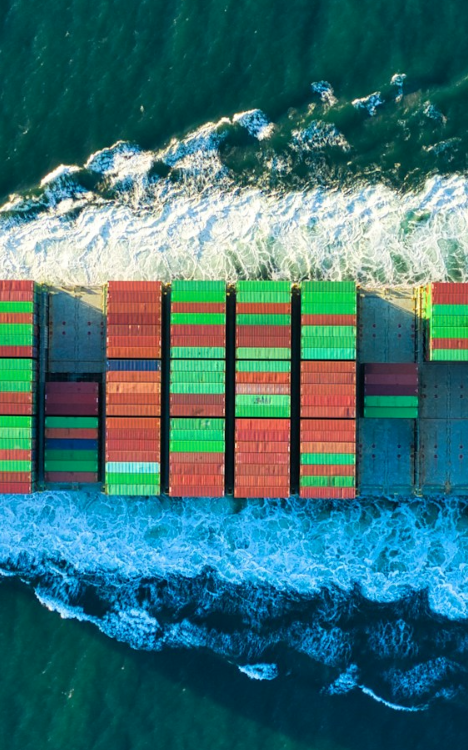- Approximately 3.4 million tonnes of CO2 a month
- This could amount up to 41 million tonnes in a year
- Increased carbon emissions put companies’ Net Zero targets in jeopardy
- Increased shipping costs forcing companies to find savings across their supply chains
The crisis in the Red Sea, which has forced many ships to reroute around the Cape of Good Hope, has dramatically increased the carbon footprints of companies reliant on shipping, undermining their ability to hit Net Zero commitments.
Approximately 13.6 million tonnes of CO2 have been emitted by ships rerouted from the Suez Canal around the Cape of Good Hope since the start of the crisis* says supply chain experts INVERTO, part of Boston Consulting Group. This is equivalent to the carbon emissions of 9 million cars over the same period**.
If the crisis continues, the increased emissions could amount to 41 million extra tonnes of CO2 in a year.
Rerouting around Africa has also pushed up costs, forcing companies reliant on shipping to find procurement savings in their supply chains to avoid having to pass those costs onto consumers.
Comments from Sushank Agarwal, Principal at supply chain experts INVERTO, part of Boston Consulting Group.
Says Sushank Agarwal: “Having to divert ships around the Cape of Good Hope created a shock to supply chains. That stage is largely over and attention is now on the problem of increased carbon emissions and of course increased costs.”
“The extra emissions resulting from this crisis will increase companies’ carbon footprints – making it very hard to hit their Net Zero targets.”
“To meet these targets, companies will either need to reduce emissions elsewhere in their supply chains or invest in more carbon offset initiatives – both can be very costly.”
“Companies will likely need to find procurement savings in other parts of their supply chain.”
“Longer transit times also mean that companies will need to hold onto more inventory. This is expensive and ties up capital.”
“Passing on increased costs to consumers will be particularly difficult right now. Consumers are expecting prices to moderate after years of high inflation.”
Panama Canal drought adds pressure on shipping industry
Says Sushank Agarwal: “The Red Sea is far from the only headache for companies relying on international shipping – costs of shipping through the Panama canal have also increased sharply.”
“Lower levels of rainfall in Central America has reduced shipping flows through the Panama Canal.”
“The Red Sea crisis and Panama Canal drought both highlight how important supply chain management is for companies. Geopolitical tensions and extreme weather events are out of companies’ control – it is essential to examine all aspects of procurement and build up supply chain resilience.”
*Sources: Approximately 300 ships a week have been rerouted from the Red Sea around the Cape of Good Hope between mid-December 2023 and mid-April 2024, each burning an average extra 900 tonnes of fuel, with each tonne of fuel emitting 3.15 tonnes of CO2.
**Sources: US EPA estimates typical passenger vehicle emits 4.6 tonnes of CO2 a year, 8.9 million typical passenger vehicles would emit 13.6 million tonnes of CO2 in a four-month period. International Energy Agency estimated 1 billion passenger vehicles emitted 3 billion tonnes of CO2 in 2020, so 13.6 million vehicles would emit 13.6 million tonnes of CO2 in a four-month period. The equivalent passenger vehicle range for extra Red Sea carbon emissions would be 8.9 – 13.6 million vehicles.
About INVERTO
As an international management consultancy, INVERTO is one of the leading specialists in strategic procurement and supply chain management in Europe. The consultancy supports companies from strategy development to implementation and accompanies them in the digitalization of procurement. As a subsidiary of the Boston Consulting Group, INVERTO identifies and realizes the potential for process optimization and cost reduction for its clients and supports the establishment of resilient supply chains that meet sustainability criteria. In comprehensive transformation projects, INVERTO is the trusted partner for improving the performance of the procurement organization.
INVERTO has over 500 employees in 14 locations in 11 countries. The diverse, international teams have in-depth expertise in various industries and functions. Clients include international corporations and mid-sized companies across all industries, as well as the world’s leading private equity firms.
Get in contact with our press responsibles


